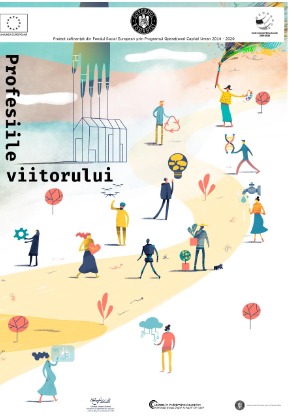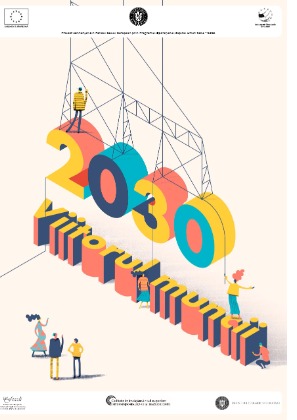Last Edited: a month ago
Future Professions 2030December 2021
A Study on the Alignment of Romania's Educational Offer with the Dynamics of Emerging Professions
Like everywhere in the world, in Romania, people perceive their work, to varying degrees, as both a source of material well-being and a fundamental aspect of their identity. Uncertainties about how people will work in the future—how they will earn their income and build meaning and purpose through their jobs—are important concerns and often a source of anxiety.
Where are different industries and sectors headed? What is possible, and what is likely regarding the evolution of professions by 2030? Which of these developments are desirable? What can universities and the business sector do to facilitate these changes? These questions motivated our research.
This study encourages futures thinking, understood as an informed exploration of the evolution of a set of professions across various fields. These professions were identified through a dedicated process that included, among other methods, horizon scanning—tracking societal and technological trends that are shaping the global labor market.
The set of professions expected to undergo significant transformation by 2030 was the focus of participatory exercises, fulfilling the foresight function of debating the future. Through interviews with diverse stakeholders—employers from various industries and coordinators of academic programs relevant to the professions analyzed—we aimed to integrate different perspectives and interests into discussions about future developments and strategic choices. This debate was further expanded through a broader online consultation using the Dynamic Argumentative Delphi method, which examined both the expected demand for each profession by 2030 and the adequacy of the current educational offer to meet this demand.
In addition to these foresight efforts, the study presents an analysis of higher education specializations in Romania relevant to the professions of the future. This is illustrated through visual representations of the trends in university graduates who could enter the identified professions.
Through these efforts, we approach the future-shaping function of foresight, which translates into strategic advisory support, integrating insights from both individual and institutional actors into policy-related knowledge. Moreover, this approach aims to facilitate the implementation of public policies by fostering networks, knowledge platforms, and other foresight intelligence infrastructures.
***
The study was published in Romanian as part of the project POCU INTL - Quality in higher education: internationalization and databases for the development of Romanian higher education.
Project webpage: pocu-intl.uefiscdi.ro
Posted on: 13/03/2025


